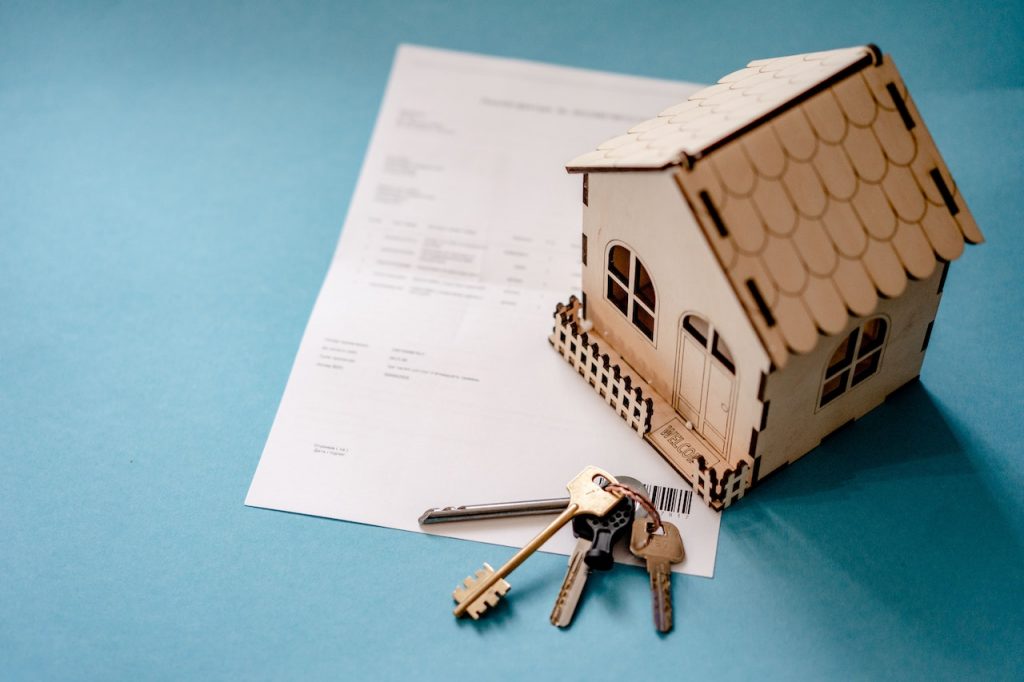Selling your home can feel like an overwhelming task, especially if you’ve never done it before. The good news is that with the right approach and some practical strategies, you can navigate the real estate market successfully. Whether you’re a first-time seller or a seasoned pro, we’ve got some tips that will help you sell your home quickly and at a great price. So, let’s dive deeper into each of these strategies.

12 Best Ways to Sell Your Home in Real Estate Market
1. Price it Right
Pricing your home correctly is the cornerstone of a successful sale. It’s easy to get sentimental about your home, but when it comes to selling, you need to be objective. Take a look at recent sales of similar properties in your neighborhood. Consulting with a local real estate agent can be incredibly helpful in determining a competitive yet realistic price. Overpricing can scare away potential buyers, while underpricing might cost you money in the long run.
2. Curb Appeal Matters
First impressions matter a lot in real estate. Your home’s exterior is the first thing potential buyers see, and it sets the tone for their overall impression. Spend some time enhancing your curb appeal. This could mean mowing the lawn, planting colorful flowers, and giving your front door a fresh coat of paint. These simple touches can create a welcoming atmosphere that makes buyers eager to explore the inside.
3. Declutter and Depersonalize
When potential buyers walk into your home, they want to envision themselves living there. That’s why it’s crucial to declutter and depersonalize your space. Clear out excess stuff, put away personal photos, and create a clean, neutral canvas. This allows buyers to imagine their furniture and decor in the space, making it easier for them to connect with your home.
4. Professional Photography
In today’s digital age, high-quality photos are essential. Hire a professional photographer to capture your home in the best light. Stunning photos can significantly increase the number of online viewers and potential buyers.
5. Online Presence
Most buyers start their home search online. Make sure your home is listed on popular real estate websites and social media platforms. Craft an engaging online listing with professional photos to generate interest and inquiries. There are many online platforms for Real Estate Professionals like Realtor, Real Estate Investing, FastExpert, etc.
6. Showcase Your Home’s Best Features
Each home has its unique selling points. Whether it’s a charming fireplace, a spacious backyard, or a newly renovated kitchen, make sure to showcase these features prominently in your marketing materials and during showings. Highlighting what makes your home special can pique buyers’ interest.
7. Stage Your Home
Staging your home can make a significant difference in how potential buyers perceive the space. It helps them visualize the layout and potential of each room. You don’t need to spend a fortune; even simple staging with a few key pieces of furniture can do wonders.
8. Flexibility with Showings
Be as flexible as possible when it comes to showing your home. Buyers may have different schedules, so try to make your home available for viewing at various times. The more people see your home, the higher the chances of finding the right buyer.
9. Home Inspection and Repairs
Consider getting a pre-listing inspection to identify any issues that might deter buyers. Addressing these problems beforehand can save you time and negotiation hassles down the road. It also shows potential buyers that you’re transparent and committed to a fair deal.
10. Choose the Right Real Estate Agent
A knowledgeable and experienced real estate agent can be your greatest ally in this process. They can provide valuable market insights, help you with pricing, and handle negotiations on your behalf. Choose an agent you trust and feel comfortable working with; their guidance can be invaluable.
11. Negotiate Wisely
When offers start coming in, it’s essential to approach negotiations with an open mind. Be willing to compromise, but don’t rush into decisions. Your real estate agent can guide you through this crucial stage, helping you make informed choices.
12. Closing the Deal
Once you’ve accepted an offer, the closing process begins. Work closely with your agent to ensure a smooth closing. Be prepared to address any last-minute requests or issues that may arise. A dedicated team to navigate this final stage will help ensure your sale concludes successfully.
Paperwork for Selling Your Home
Preparing the paperwork for selling a house is a critical step in the home-selling process. Ensuring that you have all the necessary documents in order can help streamline the sale and avoid potential legal issues down the road. Here’s a comprehensive guide on how to prepare the paperwork for selling a house:
1. Title Deed
Obtain a copy of your property’s title deed. This document proves your ownership of the property. You’ll need it to transfer ownership to the buyer.
2. Property Survey
A property survey outlines the boundaries of your property and any structures on it. While not always required, it can be useful for resolving boundary disputes or encroachments.
3. Property Disclosure Form
Brokers have a responsibility to provide complete and transparent information about a property, as stated in the Code of Ethics & Responsibilities for Real Estate Service Practitioners. This is crucial during the buyer’s decision-making process.
4. Purchase Agreement
Draft or use a standard Purchase Agreement form. This legally binding document outlines the terms and conditions of the sale, including the purchase price, earnest money, and any contingencies.
5. Closing Statement
Prepare a closing statement that details the financial aspects of the transaction, including the final purchase price, closing costs, and the allocation of expenses between the buyer and seller.
6. Mortgage Payoff Information
If you have a mortgage on the property, obtain a mortgage payoff statement from your lender. This statement will show the remaining balance on the loan, including any penalties for early payoff.
7. Property Tax Information
Gather information on property taxes, including the most recent tax bill. The buyer may want to prorate property taxes at closing.
8. Homeowners’ Association (HOA) Documents
Provide copies of relevant HOA documents to the buyer, including bylaws, covenants, conditions, and restrictions (CC&Rs) as well as the most recent financial statements.
9. Home Inspection Reports
Share the report with the buyer if you’ve had a home inspection. It’s also a good practice to disclose any repairs or issues you’ve addressed based on the inspection.
10. Warranties and Manuals
Provide the buyer with copies of warranties for appliances, systems, and recent renovations. You may include manuals and maintenance records if you have them.
11. Occupancy and Possession Agreements
Write down the date when the buyer will take possession in an occupancy or possession agreement if you and the buyer agree.
12. Power of Attorney (if applicable)
You may need to execute a power of attorney document if you cannot be present for the closing.
13. Certificate of Good Standing for Domestic Corporations
Obtain a certificate of good standing from the Secretary of State’s office if you are selling the property.
14. Other Legal Documents (if applicable)
Depending on your situation, additional documents may be required, such as divorce decrees, court orders, or trust agreements. Check with your attorney to ensure you have all the necessary documents.
15. Consult with Professionals
It’s advisable to work with a qualified real estate attorney and a real estate agent experienced in transactions. They can help you navigate the legal requirements and ensure your paperwork is accurate and complete.
Should you hire a real estate agent to sell your home?
Hiring a real estate agent when selling your home can be highly advantageous. HousingInteractive, a renowned real estate brokerage firm with extensive industry experience, can provide valuable insights and support throughout the process. Consider the key benefits of working with a real estate agent for a successful home sale.
1. Market Knowledge and Pricing Expertise
Real estate agents have extensive knowledge of the local market. They can help you determine the right listing price for your home by analyzing comparable sales, current market conditions, and other factors. This ensures you don’t underprice or overprice your property.
2. Marketing and Exposure
Real estate agents have access to a broad network of potential buyers through Multiple Listing Services (MLS) and industry connections. They can market your home effectively, using professional photography, online listings, open houses, and other strategies to attract a wider audience.
3. Negotiation Skills
Negotiating the sale of a home can be complex. An experienced real estate agent can skillfully negotiate on your behalf, ensuring you get the best possible price and terms. They can also navigate counteroffers and contingencies.
4. Time and Convenience
Selling a home involves various tasks, from marketing and scheduling showings to handling paperwork and negotiations. An agent can save you time and alleviate stress by taking care of these responsibilities, allowing you to focus on other aspects of your life.
5. Legal Protection
Real estate transactions come with legal intricacies and potential pitfalls. A real estate agent is well-versed in real estate laws and regulations, helping you avoid legal issues and ensuring all necessary paperwork is correctly completed.
6. Objective Advice
Selling your home can be an emotional process. An agent can provide objective advice and keep emotions in check, helping you make rational decisions throughout the transaction.
7. Access to Buyer Agents
Many buyers work with real estate agents to find properties. Listing your home with an agent increases the likelihood of attracting buyers who are working with their agents, potentially expediting the sale.
8. Pricing Strategy
Agents can help you develop a pricing strategy that maximizes your return while appealing to potential buyers. They can also guide home improvements or staging to increase your home’s appeal.
While hiring a real estate agent offers numerous benefits, it’s important to keep in mind that their services come with a commission fee, typically a percentage of the sale price. This cost should be factored into your financial considerations.
Summary
Selling your home is indeed a significant undertaking, but with the right strategies and a bit of patience, you can achieve a successful sale. Keep in mind that the real estate market can vary depending on your specific location, so it’s essential to stay informed about local trends and adapt your approach accordingly.
This guest post has been graciously contributed by:
Ron Dahlhofer, a passionate real estate estate professional and property listing expert, has 10+ years of real estate industry experience. Ron helps hundreds of real estate businesses to grow with his unique techniques.

























